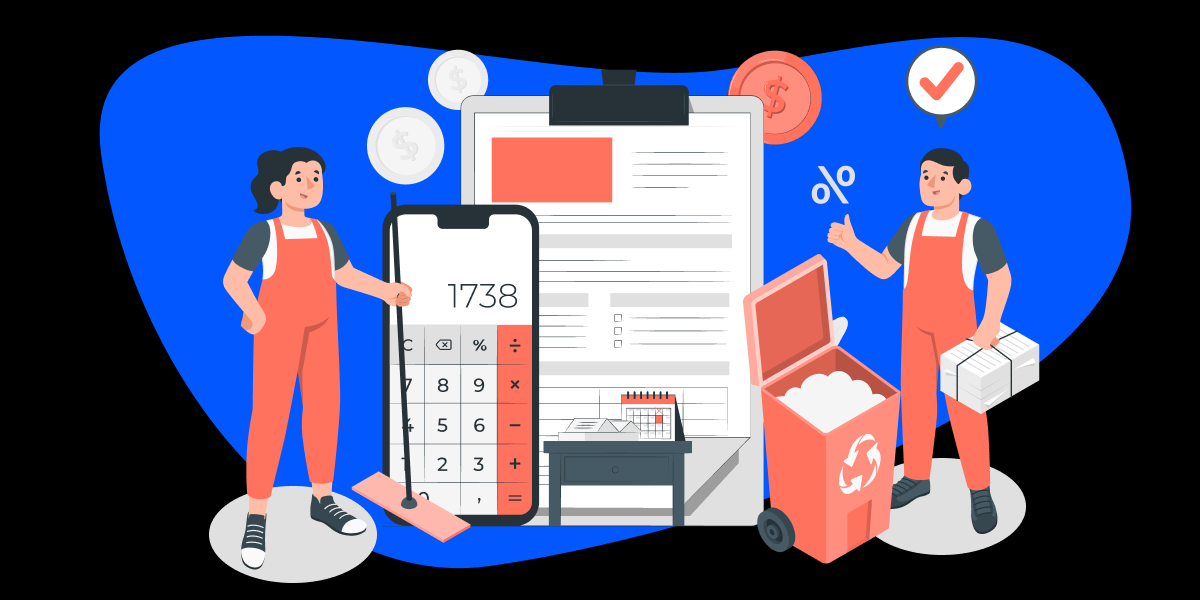5 Things to Know About Credit Card Processing for Small Businesses
Looking to learn more about credit card processing for small business? You've come to the right place! Check out our blog on credit card processing.



Americans don't carry as much cash as they used to. A US Bank survey found that only half of shoppers keep cash on hand while shopping. Among those who do carry cash, nearly 80% carry less than $50.
For small businesses, accepting a wide range of payment options can be the difference between making and losing a sale. Still, figuring out which credit card processor is best for your small businesses can be challenging.
Read on to learn five key facts about credit card processing for small businesses.
Fact #1: Credit Card Processing for Small Business Has at Least Three Major Stages
Credit cards help take the friction out of most transactions. But behind the scenes, your credit card processor will streamline a series of complex steps.
There are three major steps to each credit card transaction:
- Authorization: Your business gets approval from the customer's bank.
- Authentication: The customer's bank checks the transaction to make sure it's not fraudulent.
- Clearing and Settlement: Funds are transferred. Charges are also posted to the customer's credit card statement.
Within each of these steps, there are many smaller exchanges that push transactions forward.
The credit card processing fee you pay per transaction will cover these functions. If problems occur, your credit card processor will also help resolve them.
Fact #2: Credit Card Processors Don't Always Require Hardware
Small businesses need credit card processing that is affordable and flexible. Instead of bulky registers, most small businesses now sell online or through portable devices. Today, many retailers need minimal or no hardware to process credit card transactions.
Since 2016, shoppers have completed more than half of their purchases online. Secure, seamless online checkout is key to landing more sales.
When customers shop on your website, they'll want flexible payment options. Customers appreciate a clean, simple interface that is easy to navigate.
Small businesses can also accept payments in person, with or without hardware. Mobile payments can be processed through apps or even SMS.
One caveat: Never work with a company that insists on renting equipment. Renting equipment can sometimes be an acceptable option. But contracts that mandate rentals are often long lasting, difficult to exit and unethical.
Fact #3: Credit Card Processing Should Integrate With Small Businesses' Existing Systems
If you've been in business for a while, you have plenty of existing systems in place. Your credit card processor should plug into the tools you already have—not add more complexity.
Common integrations include:
- Automated bills for recurring payments
- Online booking tools
- Accounting software, such as Quickbooks
- SMS authentication
If integration isn't possible, the provider might offer their own versions of these services. For example, GoSite's mobile app puts a detailed record of every credit card transaction at your fingertips.
Fact #4: Credit Card Processing Companies Should Keep Small Businesses' Data Safe
When choosing a credit card processing vendor, small businesses should always put safety first. With cyber crime on the rise, it's important to always protect customer data.
Today, nearly one-quarter of Americans have personally experienced identity theft. Customers won't use a payment processor unless they feel confident it will keep them safe.
One essential feature is point-to-point encryption. Instead of capturing and transmitting customers' real data, encryption masks identifying information.
If hackers intercept encrypted data, they won't be able to easily understand or use it. Only approved recipients will be able to decode and use the data to process payments.
Fact #5: When Choosing Credit Card Processing for Small Business, Beware of Hidden Fees
No small business wants to pay unnecessary fees. When choosing a credit card processor, be sure to ask tough questions about fees. You don't want to sign a contract only to get a surprise bill later.
There are two industry-standard fees you can always expect to pay:
- A flat rate transaction fee
- A percentage-based processing fee
As mentioned above, these fees cover basic costs of doing business.
Other fees vary depending on the credit card processor you choose. Examples of fees you might encounter include:
- Authorization fee
- ACH batch fee
- Voice authorization fee
- Address verification fee, or AVS
- Encryption fee
- Application fee
- Minimum processing fee
- Early cancellation fee
- Monthly statement fee
- Annual membership fee
These fees can vary between providers, so it's important to research them carefully. Some credit card processors charge small businesses one-time fees or recurring monthly fees.
While some fees are the normal cost of doing business, others are not. Unethical credit card processors might even try to mislead small businesses by concealing fees.
Want to see how simple credit card processing for small business can be? Check out our free fact sheet below!

%20(1)%20(1).png?width=340&name=Group%2012%20(2)%20(1)%20(1).png)



